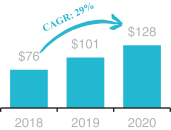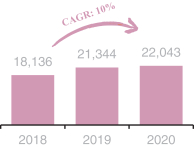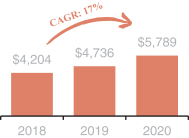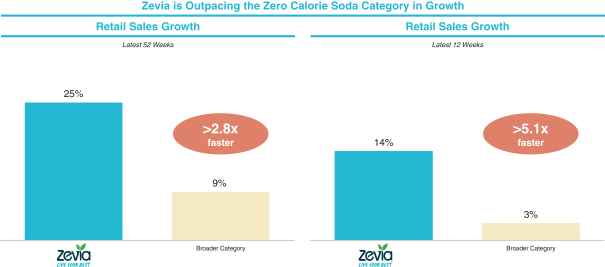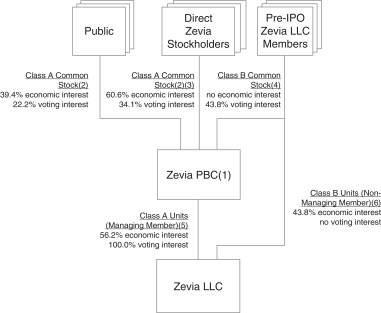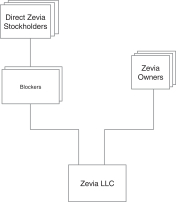that pack our products are subject to the requirements of the Federal Food, Drug, and Cosmetic Act (“FDCA”) and regulations promulgated thereunder by the FDA. The statute and regulations govern, among other things, the production, composition, ingredients, packaging, labeling, and safety of beverages. The FDA requires that facilities that produce food products comply with a range of requirements, including hazard analysis and preventative controls regulations, current good manufacturing practice requirements (“cGMPs”), and supplier verification requirements. Production facilities are subject to periodic inspection by federal, state, and local authorities. If we cannot successfully contract with manufacturers for our products and if they cannot conform to our specifications and the strict regulatory requirements of the FDA and applicable state and local laws, they may be subject to adverse inspectional findings or enforcement actions, which could materially impact our ability to market our products, could result in their inability to continue to pack for us, or could result in a recall of our products that have already been distributed.
Our products are subject to the FDA’s comprehensive regulatory authority under the FDCA, as well as by other regulatory authorities which regulate the manufacturing, preparation, quality control, import, export, packaging, labeling, marketing, advertising, promotion, distribution, safety, and/or adverse event reporting of foods. Among other things, manufacturers of conventional foods must meet applicable cGMPs and certain requirements that govern the constituents, packaging, labeling and holding of foods. Failure by us, our manufacturers, or our suppliers to comply with these regulations could result in, by way of example, significant fines, criminal and civil liability, product seizures, recalls, withdrawals, or other enforcement action. Any of these actions would have a materially adverse effect on our business, financial condition, results of operations and prospects.
Our products and their manufacturing, labeling, marketing and sale are also subject to various aspects of the Federal Trade Commission Act, the Food Safety Modernization Act, the Lanham Act, state consumer protection laws and state warning and labeling laws, such as Proposition 65 in California. Various states, provinces and other authorities require deposits, eco-taxes or fees on certain products or packaging. Similar legislation or regulations may be proposed in the future at local, state and federal levels, both in the U.S. and elsewhere. In addition, various jurisdictions may seek to adopt significant additional product labeling or warning requirements or limitations on the marketing or sale of our products as a result of what they contain or allegations that they cause adverse health effects.
Failure by us, our manufacturers, or our suppliers to comply with applicable laws and regulations or to obtain and maintain necessary permits, licenses, and registrations relating to our operations could subject us to administrative and civil penalties, including significant fines, injunctions, product recalls or seizures, withdrawals, warning letters, restrictions on the production or marketing of our products, or refusals to permit the import or export of products, civil liability, criminal liability or sanctions, or other enforcement actions. Any of these actions would result in a material effect on our operating results and business and business and financial condition, including increased operating costs. See “Description of Business—Government Regulation.”
Our policies and procedures are designed to comply with all applicable laws, accounting and reporting requirements, tax rules and other regulations and requirements, including those imposed by the SEC, the Internal Revenue Service (“IRS”), the U.S. Department of Health & Human Services, the FDA, the FTC, the USDA, the U.S. Environmental Protection Agency (“EPA”), the U.S. Occupational Safety and Health Administration (“OSHA”), the U.S. Department of Justice (“DOJ”), by state and local governments, and by comparable entities in foreign countries, as well as applicable trade, labor, sanitation, safety, environmental, labeling, anti-bribery and corruption and merchandise laws.
37




 ACCESS SUSTAINABILITY POSITIVE SOCIAL CHANGE COMPANY CULTURE PUBLIC HEALTH
ACCESS SUSTAINABILITY POSITIVE SOCIAL CHANGE COMPANY CULTURE PUBLIC HEALTH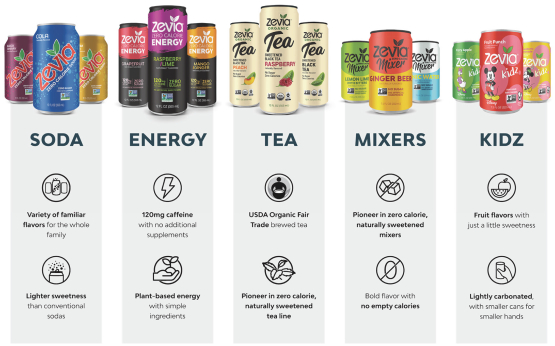
 Retail Sales ($mm) # of stores selling zevia Retail sales per store per cagr:19% cagr: 7% cagr: 11% $76 $101 $128 18,136 21,344 22,043 $4,204 $4,736 $5,789 2018 2019 2020
Retail Sales ($mm) # of stores selling zevia Retail sales per store per cagr:19% cagr: 7% cagr: 11% $76 $101 $128 18,136 21,344 22,043 $4,204 $4,736 $5,789 2018 2019 2020